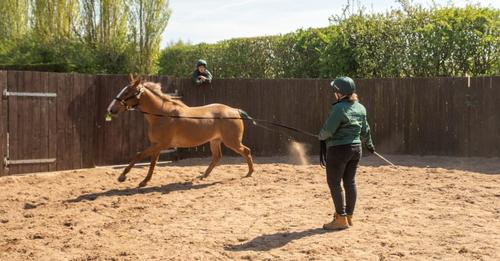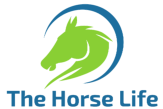
Poor performance in horses can often be interpreted as saddle fit, tack or biting issues; however there is often an underlying health condition causing resistance or behavioural problems.
Horses that are described as ‘fresh’ often exhibit behavioural signs of poor performance under saddle, including: Resistance to the aids and contact, tense head tossing, tilting of the head, reluctance to bend, hanging on one rein, tail swishing or clamping, carrying the tail to one side, bucking, rearing, spooking, a rushed gait, ‘motorbiking’ corners, frequent changes of lead in canter, disunited canter or a ‘bunny hopping’ canter, mouth opening and closing, tongue protruding from the mouth
It’s not only ‘fresh’ horses that suffer from performance related issues. Other signs that something could be amiss include: Reluctance to move forward, or ‘laziness’ toe dragging, not tracking up, stumbling, refusal to jump, stiffness, reluctance to bend, hanging on one rein
Chronic musculoskeletal or orthopaedic problems are some of the most common reasons for poor performance. Underlying low-grade or bilateral lameness is often very difficult to detect, and so a vet’s input is needed here to pinpoint the issue, achieve a diagnosis, and create a treatment plan. Low grade, bilateral or compensatory lameness can cause muscle pain and issues with saddle fit, so it’s important that you, your vet, saddle fitter and physiotherapist work together as a team to get your horse performing at his best again.
Gastric Ulcers
Another common issue causing signs of poor performance that is often secondary to musculoskeletal or orthopaedic pain is gastric ulcers. The only way to diagnose gastric ulcers is by gastroscopy, a process where a 3m long endoscope is passed through the nasal passage, down the oesophagus to the stomach. The endoscope is used to visualise the stomach to look for ulceration or bleeding. The horse is sedated for this procedure, and it takes approximately 15 minutes to carry out. Treatment for equine gastric ulcer syndrome (EGUS) is often quick and effective, and with treatment of any underlying issues alongside management changes recurrence can be prevented.
Hormones
Often mares are labelled as hormonal or difficult when they in fact have an underlying pain issue, which is why it is important to have her examined before assuming that hormones are the cause. At the beginning of the breeding season in early spring, there can be fluctuations in the hormone levels as she begins to cycle – this is called the ‘transitional period’ and this can be a time when some mares show hormonal behaviour more strongly. During the transitional period, there may not be enough hormones to allow the follicles in the mare’s ovaries to develop, and so ovulation fails. These structures are called ‘anovulatory follicles’ and although they fail to ovulate, they may still release oestrogen thus causing prolonged ‘hormonal’ behaviour. Often a single intramuscular injection of prostaglandin will cause the anovulatory follicles to regress and resume normal cycling.
Dental problems
It is important to remember that some causes of poor performance can be avoided by maintaining your horse’s preventative healthcare schedule. Dental problems can cause issues with rein contact, head tossing, tilting and mouth opening. However, horses are stoic animals and some horses will not show any outward signs of discomfort, therefore regular dental examinations are important to ensure any issues are treated promptly. We recommend dental checks every 6-12 months for the average horse; older horses or those with a previous history of dental disease may need more frequent checks.
Other causes
Respiratory, cardiovascular and metabolic issues are other potential causes of reduced performance in horses. If you notice that your horse shows any of the signs listed above or displays a change in behaviour to what’s normal for them, then it is a good idea to investigate further.
This article was published with permission of The Minster Veterinary Practice





